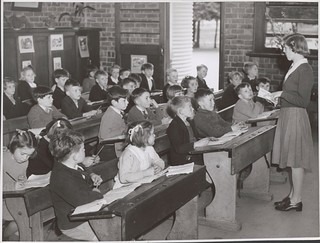Learning a new skill is sometimes daunting. Applying the skill gives you that wee bit more confidence then showing others gives a degree of confidence in the skill.
This week I learnt how to upload a video from my iPhone to YouTube then to my eportfolio, in a somewhat seamless manner. Although I am not scared of technology I think that I truly lack enough knowledge to say I’m an expert. Put it this way, I’m not scared to crash a few computers and reboot a couple more in my quest to become a techno master.
The video I chose was my daughter’s first ever book review. She is 5, an avid reader and I tend to buy her books from charity shops (Oxfam often have children’s books for 49p), eBay or TKMaxx. The book she picked for this review seemed to fit nicely with my current elective, Science. The book was Albie’s First Word by Tourville and Evans. The book is about Albert Einstein and how for being the father of relativity and scientist extraordinaire he did not speak till late into his childhood. It is an interesting read for children and adults alike, with a short biography about Einstein at the back. I feel it would encourage children to question the world of science and allow them to imagine they can be the next Einstein. No matter what. There is an undertone of Autistic behaviour described but in such a nonchalant way. Ruby picked up that, although he did not speak, he was trying. He communicated in his own way.
The way my own daughter reads has made me question the language I will use in a classroom. Why should I aim low or underestimate the children’s comprehension or grasp of language. Adams et.al (1999) discussed that teachers aim to use words they believe the children will easily understand but that if they are not stretched or exposed to more subject specific language and a wider vocabulary then teachers are doing them an injustice(pg37-38). In saying that Moyles (2003) argues that in order for children to feel confident attempting and using newly acquired vocabulary they must be put into comfortable situations where trial and error are embraced (pg40). When a challenging word is said by the teacher, it has to in turn be explored and the children’s connotations of word meaning addressed for it to be beneficial. I find reiterating the word, adding a sing song voice to it, pretending I have forgotten the meaning, using a visual prop and also parroting the word helps it sink in.
Personally, I feel that books are the door into extension, experience and engagement with new exciting words. As a teacher I hope to provide the chance to engage with the written word as often as possible and in as many medias as possible. I understand that reading a book (even if that’s make believe), is a very personal and private experience. Reading aloud to peers is daunting and often detrimental. I want them to be Charlie Cook in the Julia Donaldson novel where all they needed was to “curl up in a cosy nook to read their favourite book.”
Adams, R., Ali, S., Bassi, K.L., Hussain, N. & Brock, A., 1999. Into the enchanted forest. 1st ed. Wiltshire: Cromwell Press Ltd.
Moyles, R.J., 2003. Just playing? The role and status of play in early childhood education. 1st ed. Suffolk: St Edmundsbury Press Ltd


